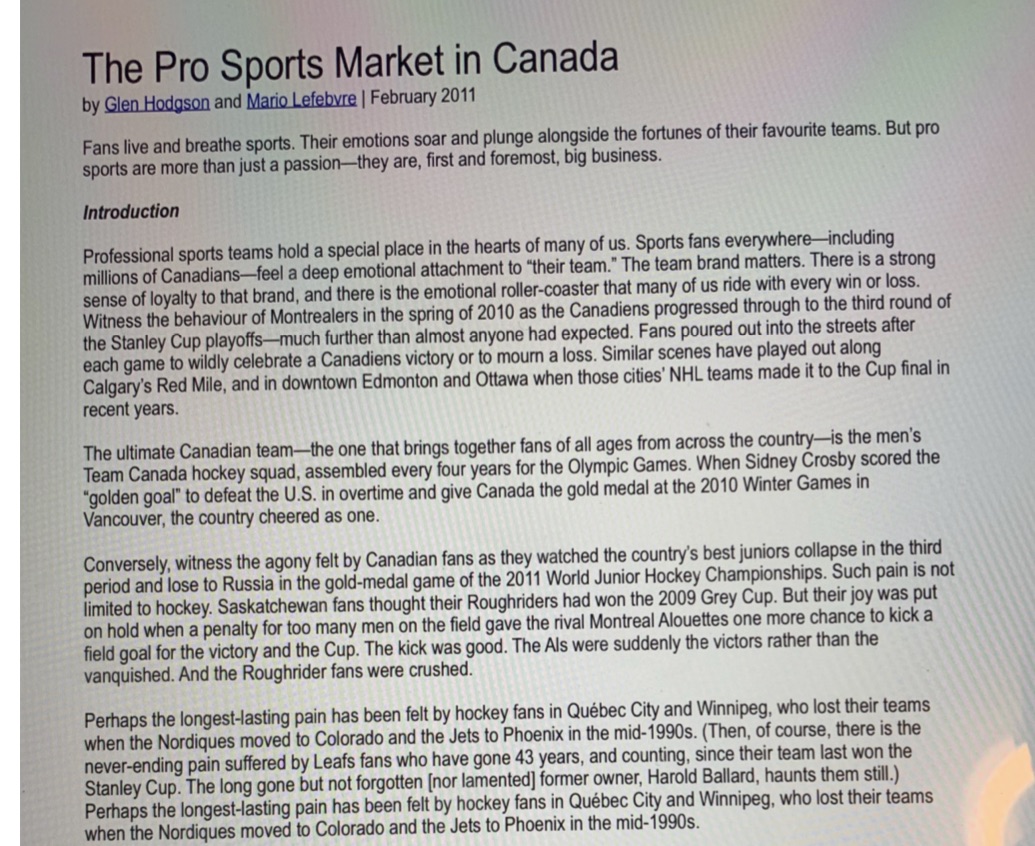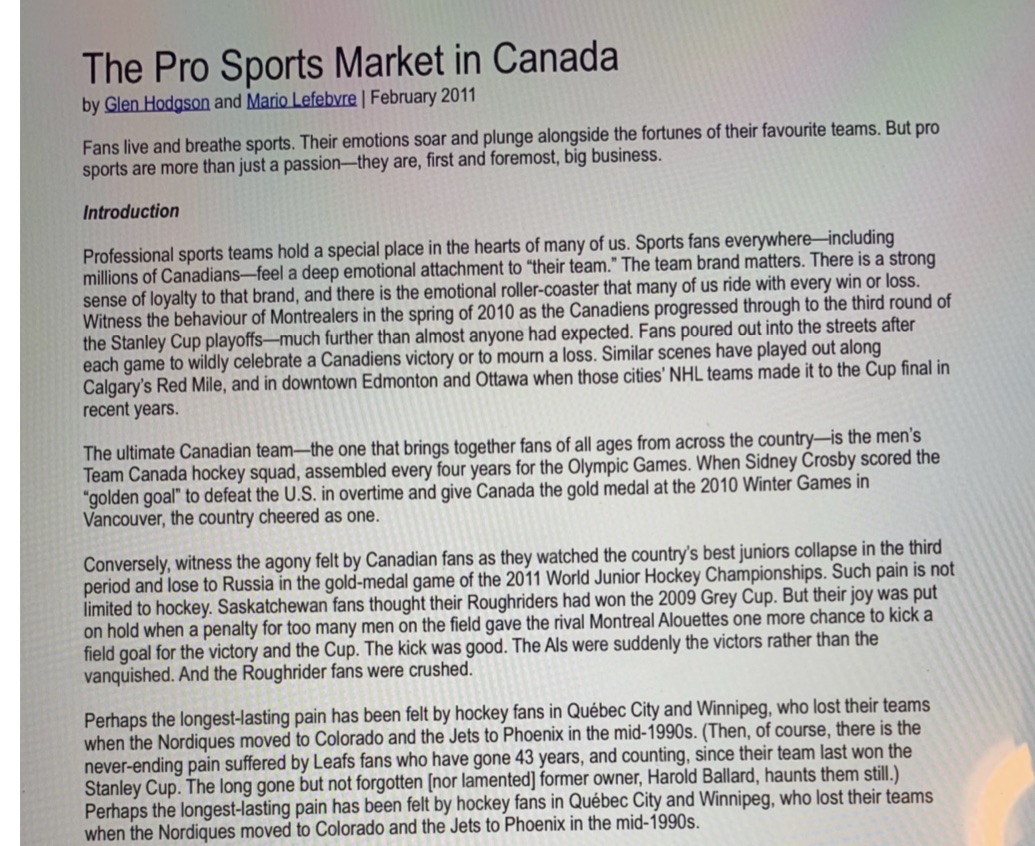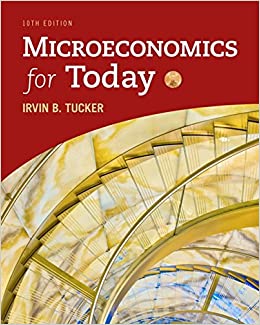
Based on the following case study include a demographic, geographic and psychographic story of the NHL fan base and of the gta and include a detailed analysis include 3 justifications as why a second NHL team could proper in Toronto and a short proposal to the national league, persuading them to allow a second team in Toronto
The Pro Sports Market in Canada by Glen Hodgson and Mario Lefebvre | February 2011 Fans live and breathe sports. Their emotions soar and plunge alongside the fortunes of their favourite teams. But pro sports are more than just a passion-they are, first and foremost, big business. Introduction Professional sports teams hold a special place in the hearts of many of us. Sports fans everywhere-including millions of Canadians-feel a deep emotional attachment to "their team." The team brand matters. There is a strong sense of loyalty to that brand, and there is the emotional roller-coaster that many of us ride with every win or loss. Witness the behaviour of Montrealers in the spring of 2010 as the Canadiens progressed through to the third round of the Stanley Cup playoffs-much further than almost anyone had expected. Fans poured out into the streets after each game to wildly celebrate a Canadiens victory or to mourn a loss. Similar scenes have played out along Calgary's Red Mile, and in downtown Edmonton and Ottawa when those cities' NHL teams made it to the Cup final in recent years. The ultimate Canadian team-the one that brings together fans of all ages from across the country-is the men's Team Canada hockey squad, assembled every four years for the Olympic Games. When Sidney Crosby scored the "golden goal" to defeat the U.S. in overtime and give Canada the gold medal at the 2010 Winter Games in Vancouver, the country cheered as one. Conversely, witness the agony felt by Canadian fans as they watched the country's best juniors collapse in the third period and lose to Russia in the gold-medal game of the 2011 World Junior Hockey Championships. Such pain is not limited to hockey. Saskatchewan fans thought their Roughriders had won the 2009 Grey Cup. But their joy was put on hold when a penalty for too many men on the field gave the rival Montreal Alouettes one more chance to kick a field goal for the victory and the Cup. The kick was good. The Als were suddenly the victors rather than the vanquished. And the Roughrider fans were crushed. Perhaps the longest-lasting pain has been felt by hockey fans in Quebec City and Winnipeg, who lost their teams when the Nordiques moved to Colorado and the Jets to Phoenix in the mid-1990s. (Then, of course, there is the never-ending pain suffered by Leafs fans who have gone 43 years, and counting, since their team last won the Stanley Cup. The long gone but not forgotten [nor lamented] former owner, Harold Ballard, haunts them still.) Perhaps the longest-lasting pain has been felt by hockey fans in Quebec City and Winnipeg, who lost their teams when the Nordiques moved to Colorado and the Jets to Phoenix in the mid-1990s








